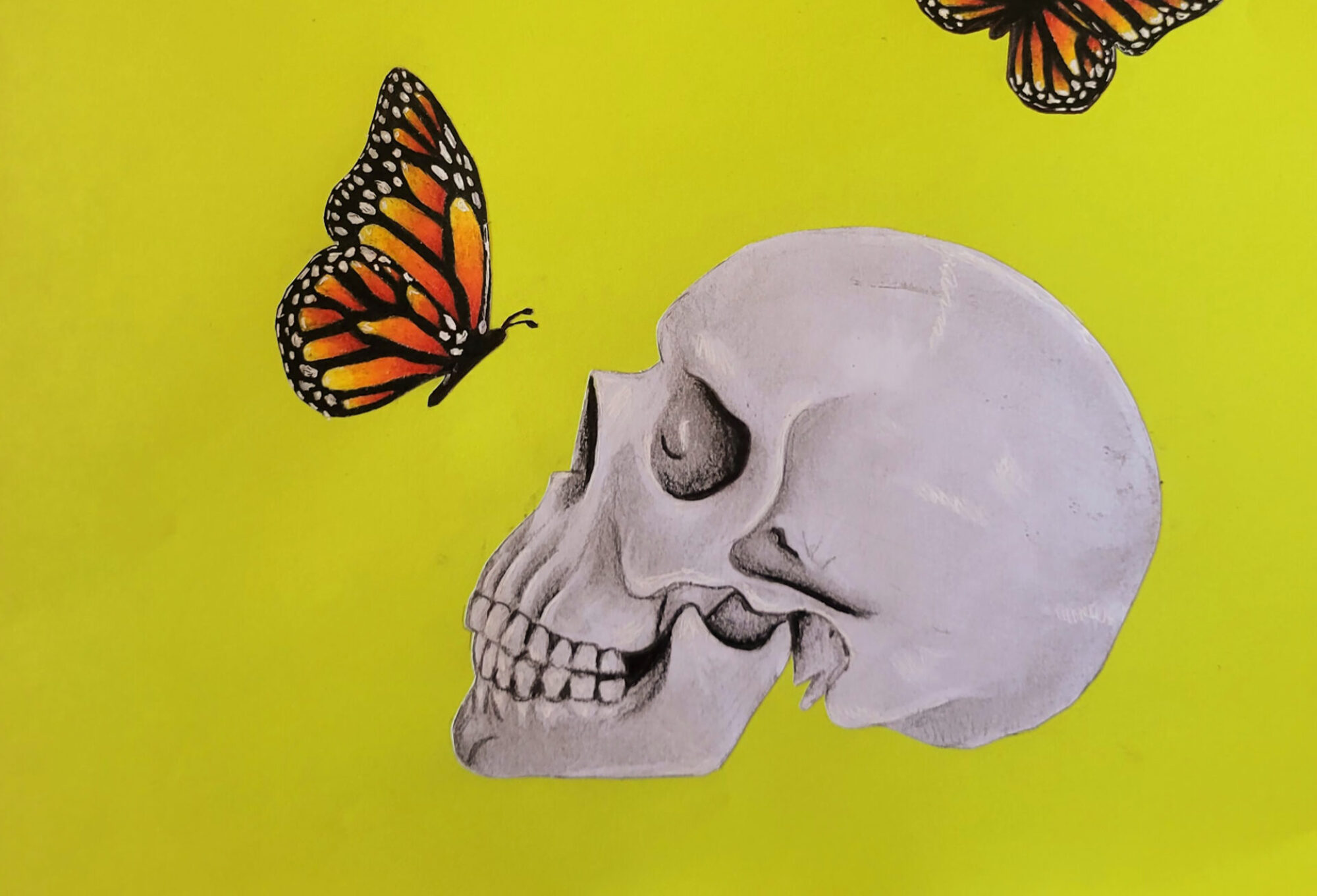This is the first of three poems by Holly that we will be posting, which should be the last three pieces we share with you all this spring. Our print issue is currently in the process of being approved, and it will be available to all of you very soon! Keep an eye out for any further announcements on that front. Without further ado, here is “Another Woman Talking to Herself.” Enjoy.
Another Woman Talking to Herself
Overcome with regret, she cradles him in her arms
before reluctantly devouring his headless corpse. Later, she will lay
a clutch of white, oval eggs, knowing
her daughters will eat her sons someday.
The mantis has no voice for her sorrow, her grief at the loss
of her brief love affair. The crickets take up her song instead
a chorus of chirps that fills the night with shadows.
Holly Day’s poetry has recently appeared in Asimov’s Science Fiction, Grain, and Harvard Review. Her newest poetry collections are Where We Went Wrong (Clare Songbirds Publishing), Into the Cracks (Golden Antelope Press), Cross Referencing a Book of Summer (Silver Bow Publishing), and The Tooth is the Largest Organ in the Human Body (Anaphora Literary Press).
